Joe and Jeff Berninger may not have known how things would unfold when they founded Cooperative for Education (CoEd) in 1996, but wow, are we glad they did! Starting from humble beginnings at a kitchen table in a tiny Guatemala City apartment, they launched CoEd with just one project at a few schools. Fast forward to 2023, and CoEd has skyrocketed, now reaching over 350 schools! Can you believe it?!
Now, if you’ve been hanging around CoEd for a while, you may be wondering what Jeff has been up to since stepping back from CoEd a few years ago to start a new venture. Well, we got the chance to catch up with Jeff, as a CoEd Legacy Society member and contributor to the new Scholarship Fund!
Read on to learn more about CoEd’s inspiring journey and Jeff’s vision for ensuring CoEd leaves a lasting, positive impact in Guatemala for generations to come.
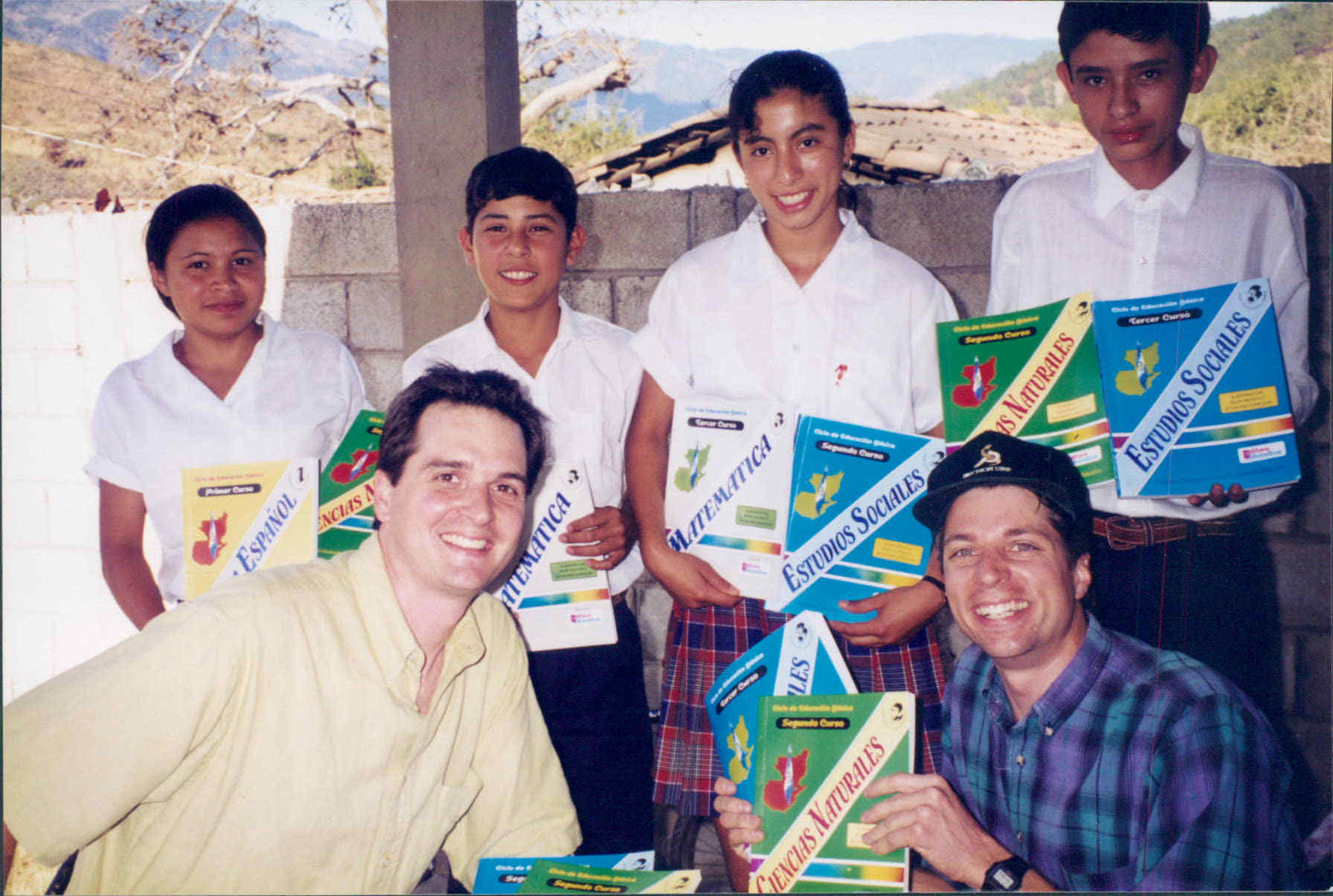
Jeff (lower left) and Joe (lower right) in the early years of the Textbook Program.
Q: You and Joe co-founded CoEd more than 25 years ago now! What would “1996 Jeff” say if he could see
CoEd today?
A: In 1996 we worked off a kitchen table in a small apartment in Guatemala City. We had just one project at four schools. I certainly thought it would grow, but never imagined that more than 25 years later we’d have an educational campus and be serving over 350 schools with multiple programs. In 1996 we were so tiny compared to other aid organizations. I never imagined that most of [those organizations] would move on or cease to exist. Their ideas of spending a few years developing programs without considering the lasting impact…this didn’t make much sense to me. How could any impact last if programs weren’t set up in a sustainable way? Our idea in 1996 was to make sustainable programs and more than 25 years later, it’s been proven that we did.
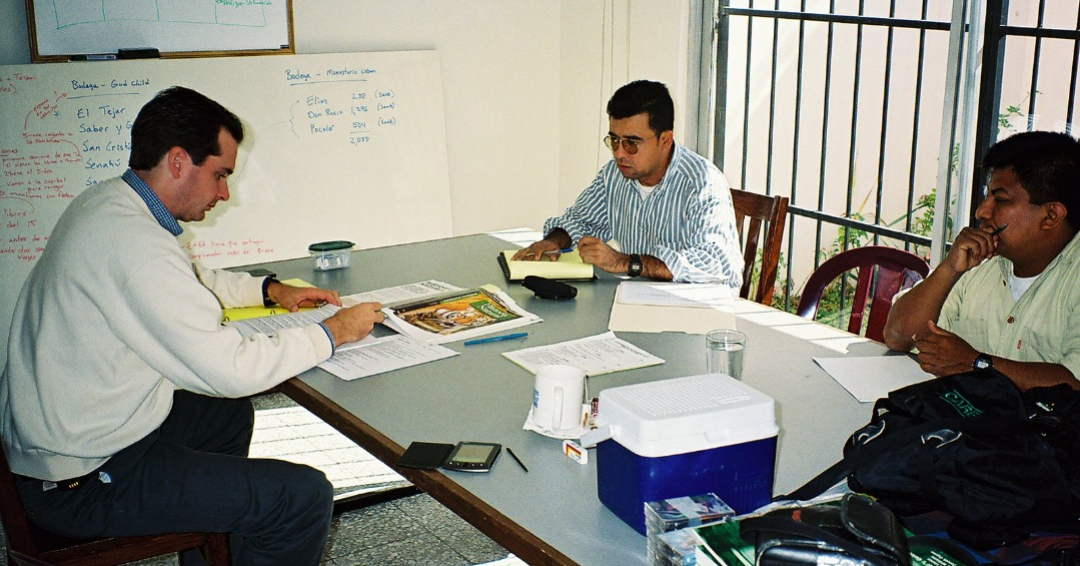
Jeff at the infamous kitchen table with one of CoEd’s first employees, Horacio, who is still with CoEd today!
Q: How has your perspective on Guatemala changed since you first traveled to Guatemala in 1991?
A: It often feels like the task of social development is daunting. In developing countries there is so much poverty that we sometimes question whether we are making a dent or just helping a few. Sometimes it feels like Guatemala hasn’t changed a whole lot. Sometimes we wonder if it’s sliding backward. But one of the most significant changes going on is one we don’t see or hear. In fact, we couldn’t. Since 1994 the number of births per woman has dropped from 5 to 2.5. Improved education–particularly keeping girls in school longer–has been a key driver of this. It’s also why I have so much hope for a brighter future for Guatemala.
The development community has also learned that empowering local communities as agents of their own change is key. But it requires resources and investment in these communities. So, I step back and think of two simple things: 1) parents are able to dedicate themselves to raising fewer children and 2) people are empowered to be agents of their own change. We are facing an incredible opportunity to invest our time and resources to help these communities permanently step out of poverty.
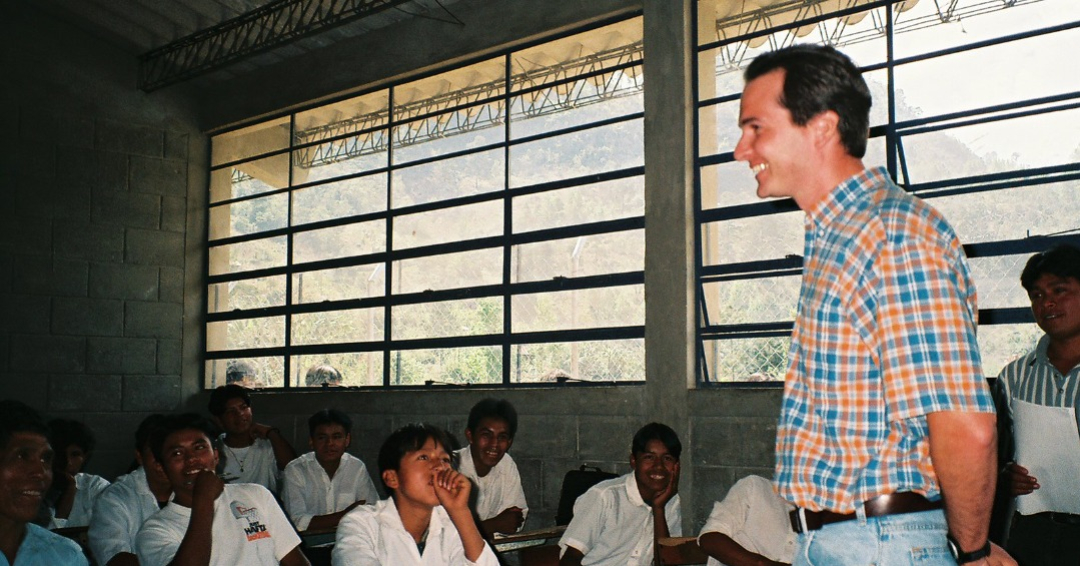
Jeff first moved to Guatemala as a volunteer English teacher. It was then that he realized the school was without textbooks and extremely underresourced.
Q: You switched gears a few years ago to start a human resources business, Superior Decision, and your wife, Johanna, also started a nonprofit in Guatemala called Idea Global—quite the dynamic duo! You have continued to stay involved at CoEd as a Legacy Society member by including CoEd in your will and estate plans. What led you to support the organization in this way?
A: The foundation of CoEd back in 1996 was built on the concept of sustainable programming. Most of us have heard the saying that we should teach to fish, not give fish. But teaching to fish doesn’t help if we don’t set up the infrastructure to build and replace fishing poles, nets, and boats. This is what CoEd
represents… helping to sustain the vital programs that truly break the cycle of poverty. Just as important as it was in 1996–and now–it’s vital that these programs continue beyond our lifetimes. This is why Johanna and I joined the Legacy Society.
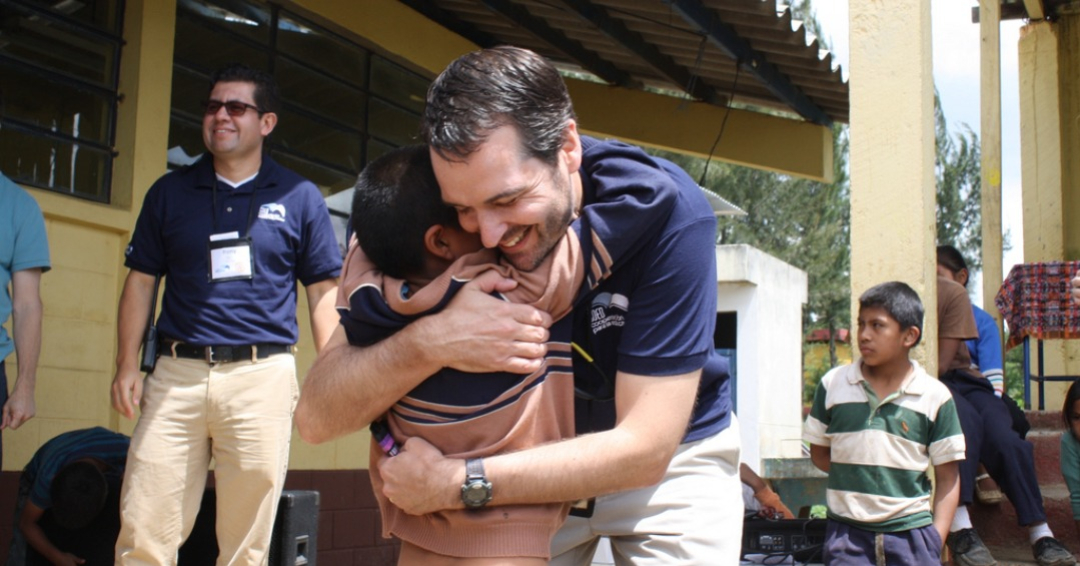
Enrichment Experience Tour (now the Helping Hands Tour) in 2015.
Q: You have also recently given to the newly formed Scholarship Fund – a gift of $25,000 that generates enough interest to fund a Rise scholarship in the program each year. What about it appealed to you?
A: In seeing the transformational nature of the Rise program, we have felt moved to help ensure this
program is made available for students both now and in the future. Having spent most of our own lives
fighting poverty in Guatemala and asking others to donate to our efforts, we felt compelled to make a
meaningful gift when afforded the opportunity to do so.
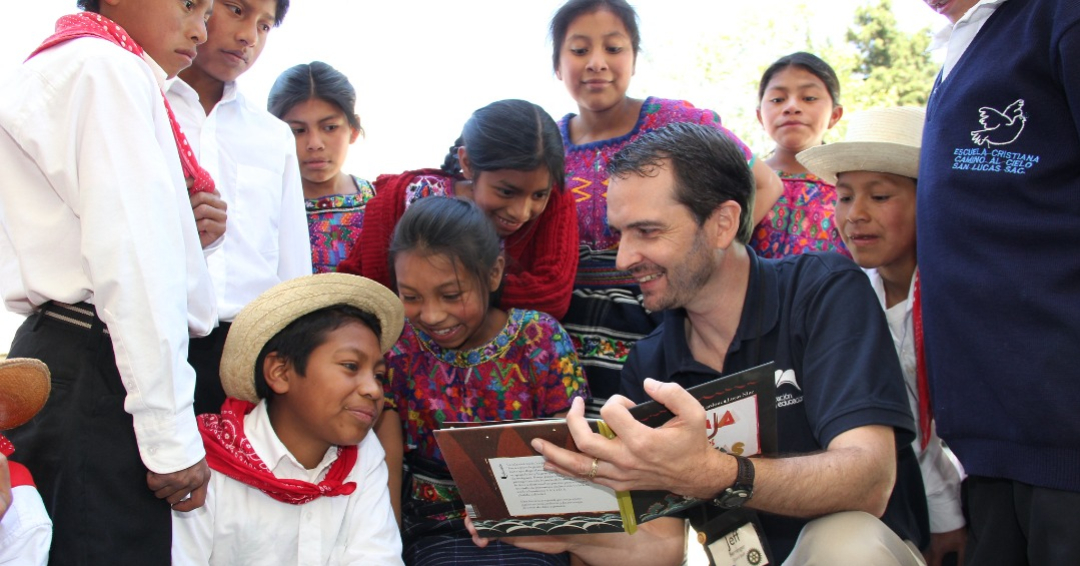
Visiting with the students at a Spark Reading Program school.
Q: In your opinion, how can we ensure that CoEd leaves a lasting, positive impact in Guatemala for generations to come?
A: When Johanna and I see all the years of dedication of so many who made and grew CoEd to what it is today, I can only think of making sure it continues. I would also like to see it grow. Though I know that each stage of growth needs a foundation to sustain it. I strongly believe that the CoEd we see today after 25 years of hard work continues thanks to a strong base of supporters who are willing to help ensure [the work] continues.
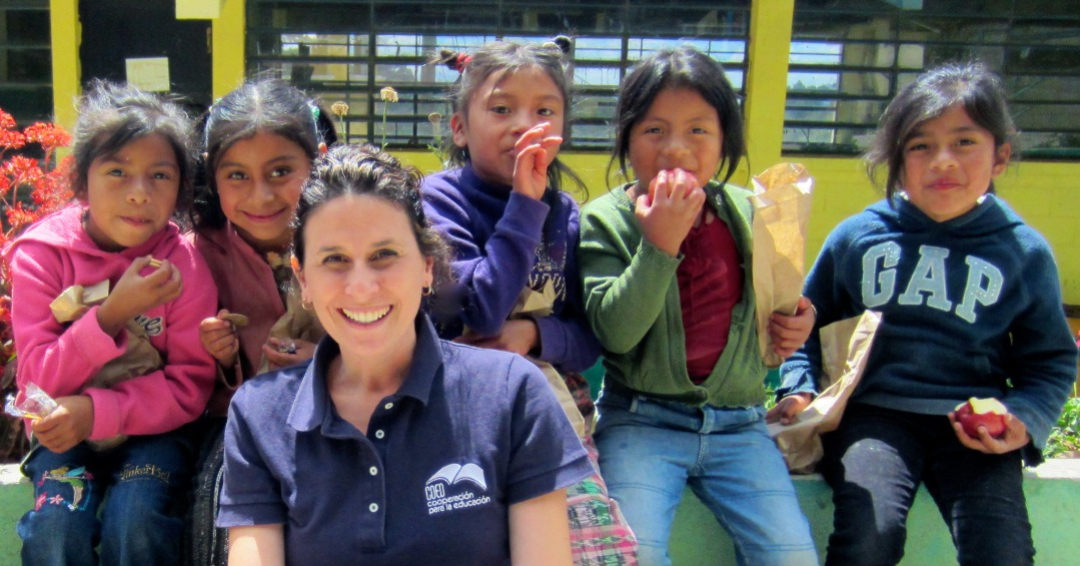
Johanna Berninger, Jeff’s wife and founder of Idea Global, a nonprofit providing early childhood education and nutrition in Guatemala.
Q: Is there anything else you’d like to share?
A: The pandemic had such a profound impact on everyone, but families living in poverty were disproportionately affected. This highlighted the importance of greater economic development for a
better world. Johanna and I have made a personal commitment in this new time to become stronger
advocates for those with little voice and few resources.
How to support students in the Rise Youth Development Program long into the future:
How to leave a lasting impact through your will and estate plans:
